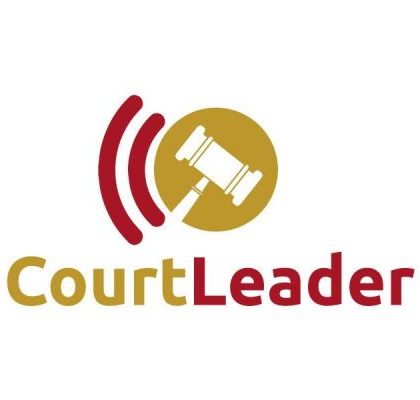May 21st Court Leader’s Advantage Podcast Episode
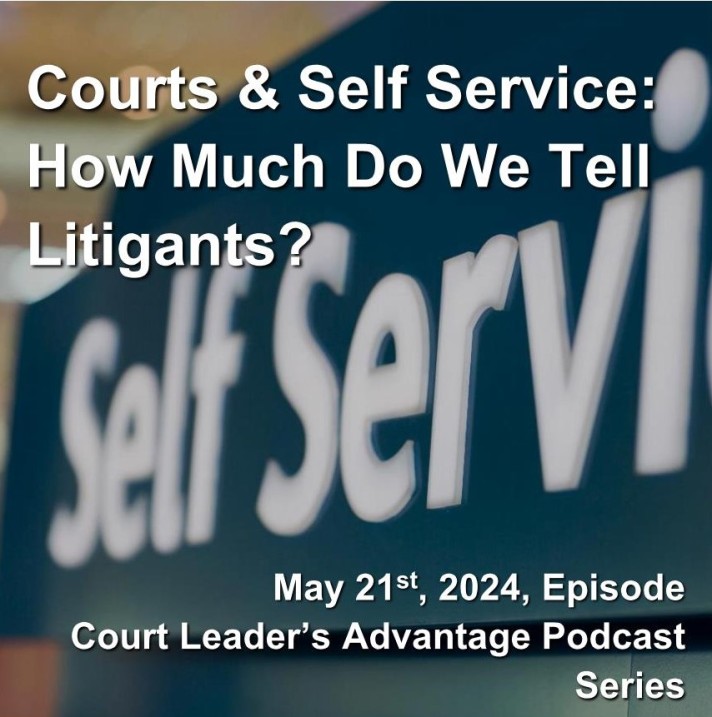
Although they are not universally accepted, court self-service centers can help prepare self-represented litigants to navigate the exotic terrain of the courtroom. They can also expedite court proceedings and weed out inappropriate arguments. Less obvious but equally as important, the information these centers provide helps boost the public’s trust and confidence in the courts. We well know that the public’s perception of courts has been woefully lagging over these last several years.
A basic tenet of self-service centers, in fact, a tenet of all public-facing court staff is “we cannot give legal advice.” Yet this prohibition is more nuanced than it first appears. There are a host of questions that seem more procedural than legal. Questions many self-represented litigants may not even know enough to ask about. How much should courts tell litigants? How much information should courts volunteer even if the litigants don’t know to ask? This month we’re going to look at what courts can, do, and should tell litigants. This episode presents several situations in which self-represented litigants often find themselves. These are situations that do not immediately appear to involve giving legal advice. Rather they seem, on their face, procedural. But they are obscure enough that only individuals who have been in the system might know their implications.
Listen to the May 21, 2024, CLAPodcast Episode on your way to or from work. 34 Minutes 43 Seconds
Watch the May 21, 2024, CLAPodcast Episode on YouTube. 36 Minutes 32 Seconds
Become Part of the Conversation. Email us at clapodcast@nacmnet.org
Today’s Panel
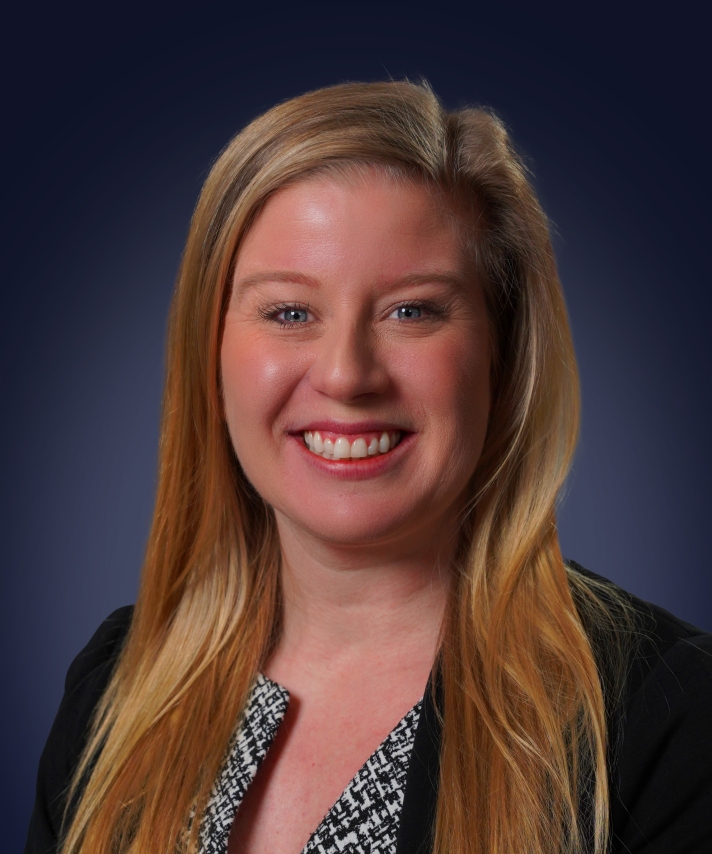
In February 2023, Jena Elsnes started in the role of Self-Represented Litigant Program Manager at the Minnesota Judicial Branch. In Jena’s current role, she is responsible for operational, administrative, and program direction for the Minnesota Judicial Branch’s Self-Represented Litigant Program at the State Court Administrator’s Office. Jena is also a licensed attorney in the State of Minnesota.
Prior to joining the Branch, Jena spent her career supporting victims of domestic and sexual violence as an advocate and attorney at local non-profit agencies. Jena has experience working with victim survivors, leading teams, and partnering with multi-disciplinary teams, systems, and community agencies. Jena has also led and supported advocates providing intervention and legal services for multiple police departments.
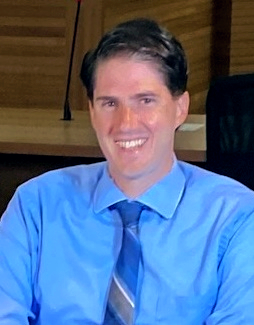
Nathan DeVries has worked with the Superior Court of California, County of San Bernardino Self-Help Services department since 2016. Since 2019, he has served as a Supervising Attorney with Self-Help Services department overseeing the Fontana, Victorville and Barstow Resource Centers. He began his career with the court as Self-Help paralegals before he was promoted to Staff Attorney and later to Supervising Attorney. Before working with the court, he worked an associate attorney with a consumers’ rights firm in Beverly Hills for three years.
He received his Juris Doctorate from Loyola Law School and his Bachelor’s Degrees from the California State University, Fullerton in Criminal Justice and Business Administration.
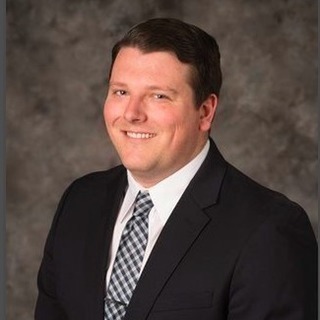
Robert Southers has served as the Managing Attorney for the Franklin County Municipal Court Self Help Resource Center since August of 2017. Recently, Robert has undertaken a merger of the Self Help Resource Center with the Court’s dispute resolution department. Along with his role directing the Court’s self-help center, dispute resolution department, and access to justice programs, Robert also serves as a co-chair for the Self-Represented Litigation Network’s Nonlawyer Navigator Working group.
In both of these roles, Robert has helped Courts around the country launch new self-help centers and navigator programs. In addition to Robert’s work with Courts, he also serves as an adjunct professor at the Ohio State University Moritz College of Law Program on Dispute Resolution.

Danielle Trujillo is the Court Administrator for the Municipal Court in Littleton, Colorado. Danielle is an innovative public safety professional with an exceptional ability to research and analyze complex issues and provide actionable conclusions. Through problem-solving and critical thinking, she utilizes a multidisciplinary approach to bridge gaps in information and processes.
She started her career in restorative justice and loves the ability to directly serve her community through local government.
Do You Want to Know More?
Minnesota Courts Work to Keep Up with Self Help Demand
